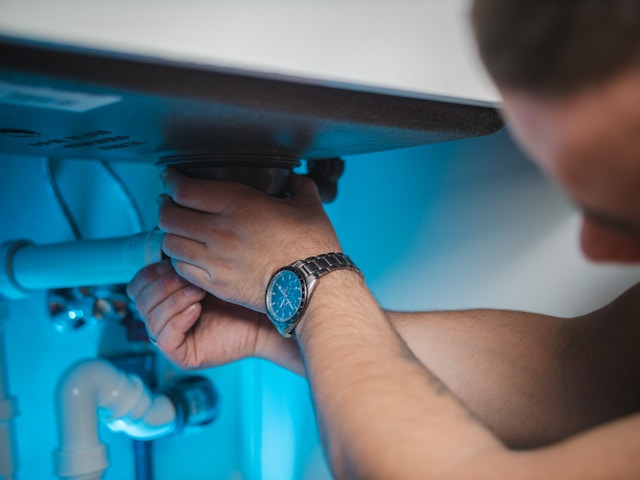A glistening pool beckons on a hot summer day, offering cool respite and endless fun. But what happens when your aquatic oasis springs a leak? Suddenly, that refreshing escape turns into a potential money pit. Leaks not only waste precious water, but can also lead to structural damage and higher water bills.
To effectively combat leaks, we must first understand the culprits behind them. Swimming pool leaks can be broadly classified into two categories: structural issues and mechanical problems.
Cracks in the Paradise: Structural Leak Causes
Over time, various factors can conspire to create cracks in your pool’s structure, allowing water to escape. Here are some common culprits:
- The Wrath of Weather: Harsh winters with freeze-thaw cycles can cause the ground to shift, putting stress on your pool’s shell and leading to cracks.
- Subtle Shifts: Even minor ground movement can cause problems. If your pool sits on unstable soil, cracks may develop as the earth settles.
- Pressure Play: The constant pressure of water weight can take its toll. Pools with weak foundations or those built in areas with high water tables are more susceptible to pressure-related cracks.
- Time Takes its Toll: Exposure to ultraviolet rays from the sun can degrade the materials used in your pool’s construction, making them more brittle and prone to cracking.
The Weak Link: Leaks in the Pool’s Plumbing Network
The network of pipes that carry water throughout the pool system is another potential source of leaks. Here’s what to watch out for:
- Subterranean Threats: Pipes buried underground are susceptible to damage from shifting soil or tree root intrusion.
- Chemical Warfare: Harsh pool chemicals, if not properly balanced, can deteriorate pipes over time, causing leaks.
- Age is Just a Number (Except When It’s Not): Like all things, pool pipes have a lifespan. Normal wear and tear can lead to cracks and leaks, especially in older plumbing systems.
Mechanical Mischief: Leaks from Pool Equipment
Beyond the pool structure itself, leaks can arise from the various components that keep your pool functioning:
- Loose and Leaky Fittings: The connections between pipes, pumps, filters, and other equipment rely on fittings to create a watertight seal. Loose or broken fittings can provide an escape route for water.
- Gasket Blues: Seals and gaskets within pumps, filters, and other equipment form a vital barrier against leaks. As these components age, the gaskets can wear out and become less effective.
- Installation Errors (Let’s Hope Not!): In rare instances, leaks might be a consequence of mistakes made during the initial pool construction or equipment installation.
Not All Loss is a Leak: Evaporation’s Role
While not technically a leak, evaporation can lead to significant water loss in a swimming pool. High temperatures and strong winds can cause a considerable amount of water to escape into the air. Thankfully, measures like using a pool cover can help minimize evaporation.
Addressing the Uninvited Guest: Diagnosing and Fixing Leaks
If you suspect a leak in your swimming pool, early detection and repair are crucial. Here are some signs to watch out for:
- A Drop in Water Level: A noticeable and unexplained decrease in your pool’s water level is a strong indicator of a leak.
- Soggy Surroundings: Damp spots around the pool deck or unusual softness in the ground can suggest leaking water.
- The Green Intruder: Excessive algae growth can sometimes be a sign of a leak, as it thrives in areas with constant moisture.
- Rising Water Bills: An unexpected increase in your water bill might be a consequence of a leak that’s allowing water to escape unnoticed.
If you identify any of these signs, it’s time to call in a professional leak detection service. These specialists can utilize advanced technologies like thermal imaging or acoustic listening devices to pinpoint the leak’s exact location.
Once the source is identified, a qualified pool technician can then address the issue with appropriate repairs.
Keeping Your Pool Leak-Free
By understanding the common causes of leaks and taking proactive measures, you can enjoy a trouble-free swimming season.
Regular pool maintenance, proper chemical balancing, and inspections for cracks or loose fittings can go a long way in preventing leaks. Additionally, using a pool cover can help minimize evaporation and extend the lifespan of your pool’s components.
Remember, a little vigilance can save you a lot of water and money in the long run, keeping your backyard oasis a haven of cool refreshment, not a source of frustration.
This post was written by a professional at Mr. Pool Leak Repair. Welcome to Mr. Pool Leak Repair – Your Trusted Pool and Spa Solution in Dallas, Plano, and McKinney, TX! At https://mrpoolleakrepair.com/, we are your go-to experts for all your pool and spa needs. We proudly serve the Dallas, Plano, and McKinney areas. We specialize in a wide range of services including:
- Pool and Spa Leak Detection
- Dye Testing
- Decorative Concrete
- Pool Light Repair
- Dive Pools
- and Pool Crack Repair in the Dallas TX area!
We will ensure that your pool and spa remain in perfect condition, providing you with years of enjoyment and relaxation.







